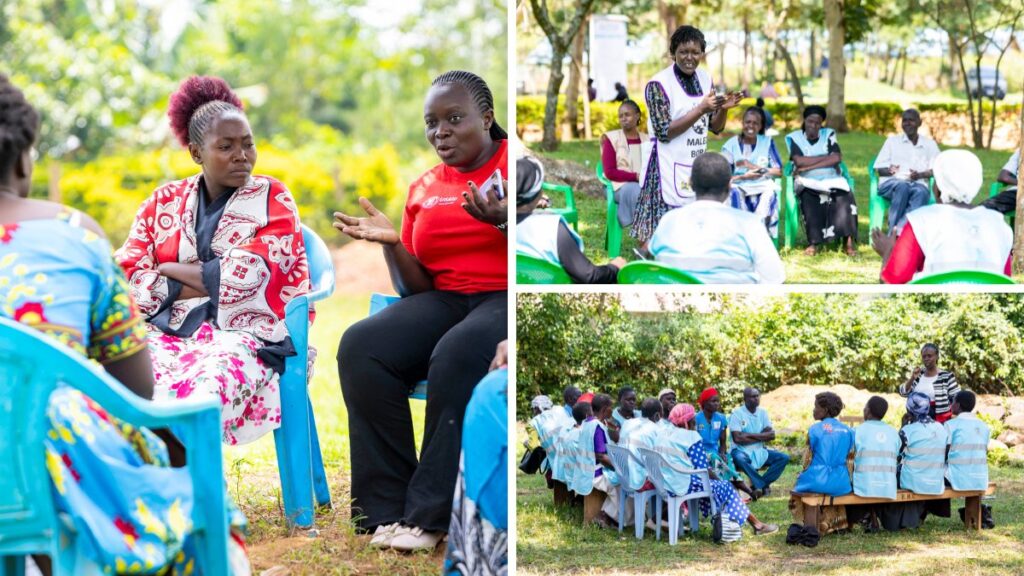Communities are and should be at the heart of the fight against malaria
Author: Ambassador Sheila Tlou (ALMA Special Ambassador) | Published: 25 April 2025
It is World Malaria Day again, and I find myself reflecting on a disease that has haunted our continent for generations, and continues to take lives, especially among the most vulnerable. It makes it even more distressing that children and mothers, the very groups I have dedicated my career to, still bear the heaviest burden of this disease. This reality points to deeper systemic gaps in our healthcare systems, where too often, the most vulnerable are left behind.
I often think back to my early days as a nurse, walking long distances to reach families in the most remote parts of Botswana. Sometimes, we gathered under trees, in small classrooms, or in community halls. These were not big campaigns, just simple conversations with people about their health, life and the struggles they face every day. We would talk about HIV, malaria, family planning and the everyday challenges families face to stay healthy. Those moments taught me a fundamental lesson: health starts with people, not hospitals. The most effective interventions are the ones communities understand, trust and own.

Health workers engaging community members in Kenya.
Community health workers are the backbone of the health system
For this reason, I have long championed the idea that community health workers are not just a part of the system, but its backbone. They break down barriers to healthcare by bringing testing, treatment and education directly to the people. But they are not just health workers; they are leaders, educators and advocates within their communities. If we are truly committed to ending malaria and other preventable diseases, we must invest in community health workers. And by investment, I do not just mean fair pay and training, even though that is crucial. We need to empower them to help shape health policies and ensure they have a voice in the decisions that impact their communities.
Day by day, community health workers demonstrate their value to the healthcare system – delivering care, educating families and monitoring disease trends at the grassroots level. Their work makes them indispensable not just in malaria control, but in building resilient health systems. Malaria, in particular, is a pathfinder for pandemic preparedness and response – presenting a unique opportunity to expand and strengthen systems in ways that extend far beyond a single disease. By investing in malaria prevention, testing and treatment, countries and development partners can further empower community health workers by expanding community health programmes, enhancing their capacity for disease surveillance through digital tools and strengthening primary healthcare infrastructure.
The importance of women in leadership positions
Beyond supporting community health workers, we must also ensure that young nurses and midwives are given leadership roles. These frontline workers are the ones who know the real needs of the people and are best positioned to help shape a health system that works for everyone. I have seen the difference it makes when nurses, especially women, are in leadership positions. They truly can drive change and make health systems more responsive.
Advocating for women’s health
Women are not only the primary caregivers in most communities but are also the most underserved when it comes to health services. Empowering women through education and economic opportunities has proven time and again to improve health outcomes for entire communities. We must continue to advocate for women’s health and make sure their voices are heard in every aspect of healthcare.
Malaria Ends with Me
This year’s World Malaria Day theme, Malaria Ends with Us: Reinvest, Reimagine, Reignite, calls us to action. Reinvest in the community health workers who are the backbone of health systems. Reimagine how our health systems function when nurses, midwives, and community health workers are given the support and voice they need. Reignite the passion and drive to end malaria — not just through science, but through people.
I have seen first-hand what’s possible when communities are mobilised, when women are empowered, and when nurses and midwives are given the chance to lead. I truly believe that malaria will end, not just through science, but through people.
About the author
Ambassador Tlou was appointed as Special Ambassador in the fight against malaria by His Excellency President Uhuru Kenyatta (ALMA Chair from January 2020 to August 2022) in 2021.
Professor Tlou is co-chair of the Global HIV Prevention Coalition and holds a similar position at the Nursing Now Campaign. She is a former UNAIDS Regional Director for Eastern and Southern Africa, former Minister for Health in the Republic of Botswana, and a former Director of the World Health Organization Collaborating Centre for Nursing Development in primary health care.
As UNAIDS Regional Director, Professor Tlou provided leadership and political advocacy for a sustainable AIDS response in 21 African countries. As co-chair of the Nursing Now Campaign, she leads a global movement, run in collaboration with the World Health Organization and the International Council of Nurses, which aims to maximise nurses’ contributions to the achievement of universal health coverage.